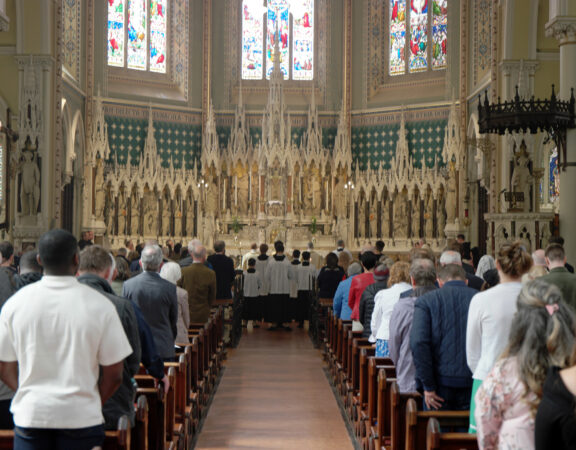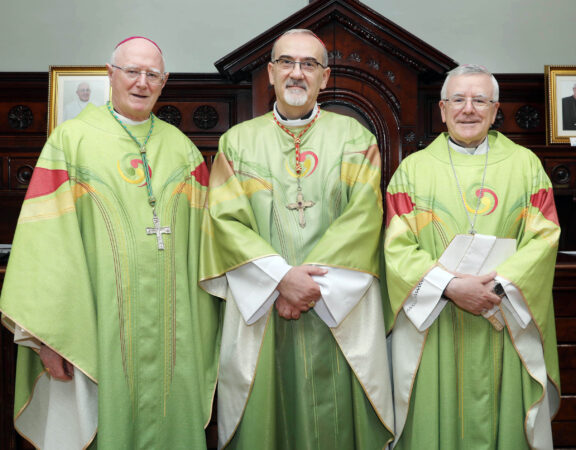Dublin Diocese begins process of significant change in Sacramental Preparation
Press Release Tuesday December 3rd 2019
The Archbishop of Dublin, Diarmuid Martin, has said training must begin immediately to prepare volunteers in parishes to support families in preparation for Baptism, Confession, First Communion and Confirmation.
For some time a consultation has been taking place throughout the Archdiocese in an effort to strengthen the bond between family, parish and schools in preparing children for sacraments.
This week, Archbishop Martin wrote to priests and parishes informing them of a proposal by Priests Council endorsing a new approach to the sacraments, centred on supporting parents in sharing faith with their children and that in time will see parishes will assume responsibility for the preparation and celebration of all four sacraments.
In his letter Archbishop Martin said that “at the heart of the proposal is to stress the primary role of families in sacramental preparation. It also advocates a renewed relationship with Catholic schools in promoting Catholic ethos and in delivering the Grow in Love programme.”
He said that any change must be achieved in line with the differing circumstances of each parish. “We must remember too that more and more Catholic children today attend other than Catholic schools. The proposal is not something that will be accomplished overnight; it cannot however be put forever on the long finger. We must begin now”, said Archbishop Martin. “It will take some time to put in place an effective development of parish capacity to implement this initiative. We need however to begin immediately with the preparation and training of voluntary lay catechists and the development of resource materials.”
This week’s decision by the Priest’s Council is the culmination of a process that began in September 2018. A sacraments review group was set up to consult widely and make practical recommendations on the future practice around Baptism, First Reconciliation, First Communion and Confirmation.
1800 people responded to an online survey. This reflected the views of parents, parishioners, clergy those in parish ministry, schoolteachers and principals. In addition there were a number of focus groups with young parents who were not regular churchgoers, to hear their voice more clearly.
Three assemblies were subsequently held across the Diocese, where the outcomes of the survey were presented and discussed.
Some key findings emerged from this process among them that the family has the primary responsibility for leading children in faith; that there is a desire for shifting the primary responsibility for sacramental preparation from school to parish. This was expressed strongly across the board and included the wish to continue involvement with schools.
An implementation group is to be set up to look at a range of issues around the proposal including, communicating with schools and with parents; recruiting and training volunteers in parishes to work with regional support workers; providing resources and finance. This group is expected to be in place by early 2020.
RESOLUTION OF THE DIOCESAN COUNCIL OF PRIESTS
ON SACRAMENTAL PREPARATION
“That the diocese implement an approach to the sacraments of Baptism, First Reconciliation, First Communion and Confirmation that pivots on supporting parents in sharing faith with their children.
That the parish assumes responsibility for the preparation and celebration of all four of these sacraments.
For First Reconciliation and First Communion, that the diocese adopts the timeline proposed to the Priests Council.
That the Archbishop sets up an implementation group for this new policy. This group will develop;
- A communications strategy, with particular attention to communications with schools and with parents.
- A planning strategy, addressing the following: recruiting locally; training these people; providing regional support workers; generating and piloting resources; financing the project.
- Guidelines for a consistent diocesan approach to Baptism, as the foundation for future ministry around these four sacraments.
- A proposal to the Priests Council and the Archbishop for the future practice of the sacrament of Confirmation.
That the composition of the implementation group be ready for presentation at the Priests Council January meeting.” ENDS






